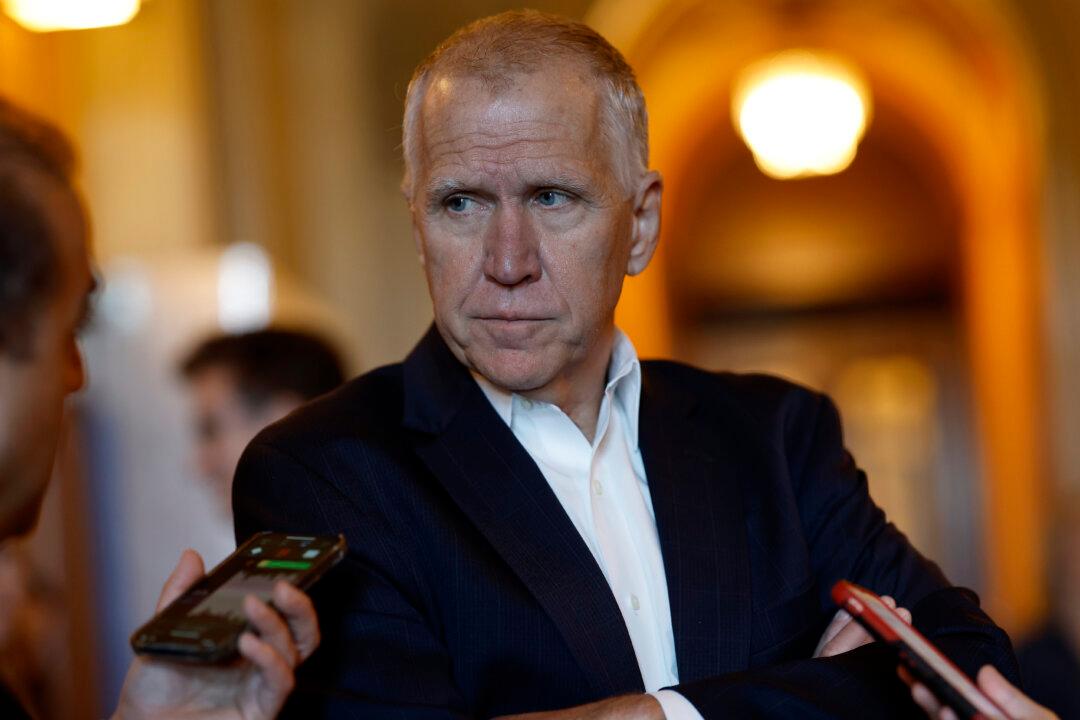A Republican senator working to hammer out an agreement on an immigration bill said the measure is aimed at securing the border and granting citizenship to millions of illegal immigrants.
“We want to seal the border. We want to prevent 2 million crossings every year—with Title 42 going away, potentially many more than that. We want to protect our Border Patrol agents,” Sen. Thom Tillis (R-N.C.) said on Fox News on Dec. 8.





